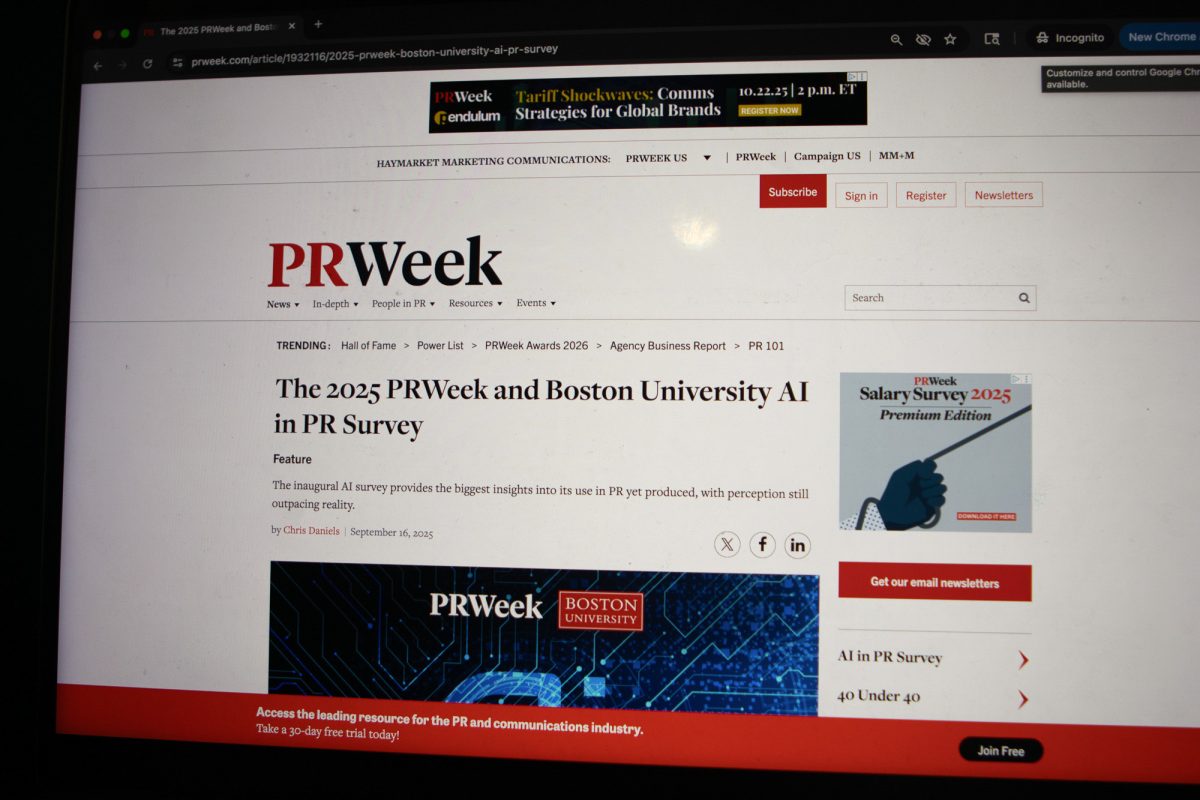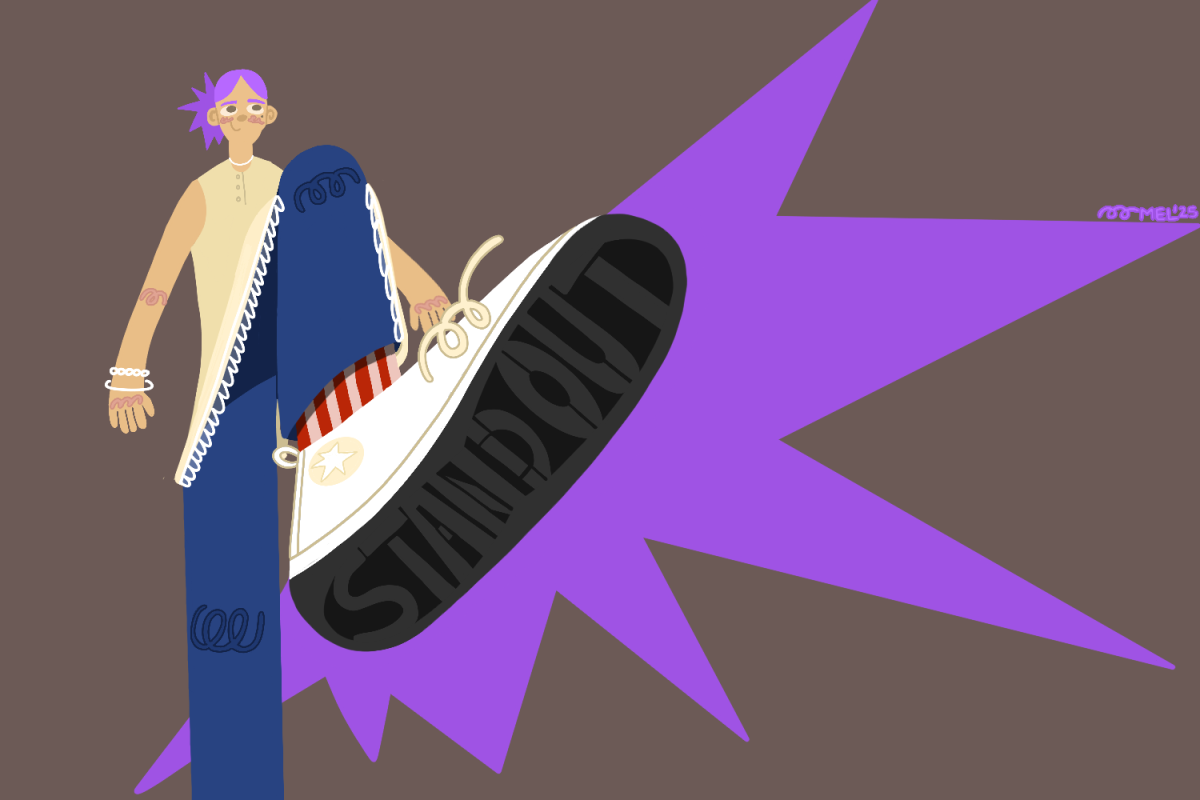Op-Eds do not reflect the editorial opinion of The Daily Free Press. They are solely the opinion of the author.
Lack of access to feminine care products has detrimental effects on girls with their periods, both hygienically and socially. When women cannot gain access to sanitary napkins or tampons, they are less healthy, less educated and less likely to be productive; ultimately, they are less likely to escape from poverty.
This issue is most commonly considered in third-world countries where girls severely lack educational and economic opportunities. Sub-Saharan Africa is often pinpointed as a region that is crippled in terms of menstrual care; indeed, studies from the United Nations International Children’s Emergency Fund suggest that one in 10 school girls in Africa do not attend school during menstruation or drop out when puberty starts. This phenomenon is in part due to a lack of sanitation and private facilities in schools. For example, in Nigeria, the national pupil-to-toilet ratio is one latrine to 292 students.
Girls often face embarrassment and ridicule from fellow classmates, as menstruation is a social taboo in many countries. Intrinsic in some cultures is the idea that menstruation is a sign of sexual maturity. Therefore, when a girl gets her period, she is likely to be forced into marriage to begin having children. This severely limits her ability to attend school. Without an education, these young women are less likely to become economically productive, and more likely to contract diseases such as HIV and have numerous children. These factors all lead to increased levels of poverty.
The situation in Sub-Saharan Africa is a quintessential example of how poverty can be exacerbated due to menstruation. In America, this occurrence is far subtler, yet must be confronted all the same.
Feminine hygiene products are typically left out of the American health care and welfare system. Tampons and pads cannot be purchased with food stamps. They are not covered by universal health care. This expense often cannot be met by a single parent, so the remaining option is to use rags. Yes, in communities and cities across this country, women and girls are using rags while on their periods because basic sanitary products are considered a luxury.
Limitations on female products extend to the prison system in America, where female inmates are often given insufficient supplies of tampons and pads. According to the mother of an inmate at West Valley Detention Center in California, “They are given three pads for their period … some of the women have had to have homemade ones made from toilet paper removed.” It is evident that the U.S. government does not place female hygiene as a high-priority aspect of health care. However, proper menstrual protection is a basic human right; it has even been defined as such by Jyoti Sanghera, chief of the UN Human Rights and Economic and Social Issues Section, who called the stigma around menstrual hygiene “a violation of several human rights, most importantly of the right to human dignity.” The fact that America turns a blind eye to the toll menstruation has on women explains the subtle ways in which periods have gone unchecked in their contribution to American poverty.
It is expensive to own a vagina. Any government attempt to regulate the prices of feminine products sold by private companies would be in vain. Therefore, however fair the idea may be, idealistic solutions to make pads and tampons free are impractical. A more realistic solution would be to place feminine hygiene products under the umbrella of the Affordable Care Act. This would allow women in low-income families, who are more likely to access ACA health care, to receive free sanitary products, boosting their productivity, confidence and economic opportunity. This solution also avoids the controversy that arises from discussions about including birth control in federally subsidized health care plans.
Allowing women to purchase pads and tampons with food stamps is another viable option. Considering modern taboos associated with unsanitary feminine hygiene as well as serious medical concerns associated with unsanitary methods of menstrual care, tampons and pads are nearly as necessary to women as food. They need to be considered by the government as such.
At the very least, tampons and pads should absolutely not have a sales tax. The fact that the government does not support women with respect to menstruation, but even benefits from it, is obscene.
Female empowerment has been proven, time and time again, to be one of the most effective means of slowing the cycle of poverty. When women are educated, healthy and confident, they are less likely to have more children than they can care for, more likely to have a stable job and ultimately more likely to escape poverty. However, because a lack of sanitary products for women on their periods affects all three of these pillars of success — education, health, and confidence — it can be concluded that even in America, limited access to pads and tampons subtly but powerfully contributes to poverty.
Our government must be conscious of the quiet beast that is menstruation, and must implement these simple but immensely productive solutions to providing for women. As Gloria Steinem famously wrote, “if suddenly, magically, men could menstruate and women could not…menstruation would become an enviable, worthy, masculine event: Men would brag about how long and how much.” I would like to add to her sentiment that if men could menstruate, pads and tampons would be handed out for free.
Hannah VanBenschoten, Treasurer of the Boston University Reproductive Health and Policy Advocates, [email protected]

















































































































Billy • Oct 7, 2016 at 2:43 pm
I couldn’t figure out if this article was copy/pasted from The Onion or not